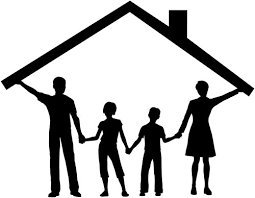Escalating role of family as a social structure
 Family as a cell of society plays an integral role in facilitation of its functioning in an effective manner. As the most basic unit in society, families can have preventive impact in relation to a wide range of issues such as drug addiction, teenage pregnancy, dealing with stress etc. In other words, neglecting the value of families as the smallest and ancient social institution in society can have highly negative implications for the society at various levels, as well as, having negative effects on the state of national economy in direct and indirect manners.
Family as a cell of society plays an integral role in facilitation of its functioning in an effective manner. As the most basic unit in society, families can have preventive impact in relation to a wide range of issues such as drug addiction, teenage pregnancy, dealing with stress etc. In other words, neglecting the value of families as the smallest and ancient social institution in society can have highly negative implications for the society at various levels, as well as, having negative effects on the state of national economy in direct and indirect manners.
Alternative basic units in society to traditional families include people living alone, single parents, different forms of collective living arrangements, and others. However, the majority of sociologists adopt a skeptical approach about the levels of positive contribution of alternative basic units in society as opposed to traditional families consisting of two parents and one or more children for justified reasons.
Escalating role of family as a social structure impose significant challenges to benefits derived from family social institution to the society in the future. A set of factors impacting the decline of popularity of families mainly in developed countries such as UK and USA in a traditional sense with two parents and one or more children include certain demographic tendencies such as ageing population, increasing numbers of couples without children, and household fission i.e. “the tendency for households to split, because of divorce and earlier independence for children” (Spicker, 2014, online).
Moreover, a tendency of prioritising career over family amongst young people possesses further threat to the role of families and associated social and personal values in the future.
It is important for a state to assume an instrumental role in terms of promoting and reinforcing formation of families in traditional sense in society. This role can be exercised through development of social policies that encourage the formation of families through offering subsidiaries to marred citizens and dependents, provision of child benefits, etc.
Equally, social policies aimed at reinforcing formation of families should comprise penalties for deviations from family values by imposing dependent support requirements for couples getting divorced and through other similar means.
References
Spicker, P. (2014) “Welfare and Society” Available at: http://www2.rgu.ac.uk/publicpolicy/introduction/contents.htm
